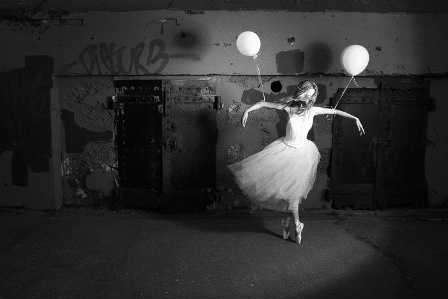 |
相關閱讀 |
在學童中間 葉芝
 |
>>> 讀書—連接古今充實信仰 >>> | 簡體 傳統 |
在學童中間 卞之琳 譯 Among School Children (1927) WB Yeats 
1
我邊走邊問,打從長教室穿過,
和藹的白頭巾老修女回答問題,
孩子們學做算術,練習唱歌
學習各樣的讀本,還有歷史,
剪裁和縫紉都要求干凈利索,
樣式最好又時新——孩子們時不時
出于好奇心,免不了抬眼注目
一位六十歲含笑的頭面人物。
2
我冥想一個麗達那樣的身影
俯就奄奄的爐火,她講起童年
一次受嚴厲的責備或一件小事青
竟然在童心上造成悲劇的一天——
這一講時我們兩個年輕的心靈
像出于同情而融進了一單個空間,
或者,改一下柏拉圖有名的妙譬,
化作了蛋黃與蛋白,渾成一體。
3
想起了當年那一陣憂傷或憤怒,
我再對這一個那一個小孩子看看,
猜是否她當年也有這樣的風度——
因為天鵝的女兒也就會承担
每一份涉水飛禽遺傳的稟賦——
也有同樣顏色的頭發和臉蛋,
這么樣一想,我的心就狂蹦亂抖,
她活現在我的面前,變一個毛丫頭。
4
她目前那一副形象飄進了我心里,
難道是十五世紀手的塑造,
它兩頰深陷,仿佛它只是喝空氣,
只是吞夠了影子就算吃飽?
我雖然從不是麗達一類的后裔,
也有過美麗的羽毛——夠了,好,
逢人最好是用微笑報微笑,表示出
這個老草人過日子挺舒舒服服。
5
年輕的母親,膝上抱一個人形
(那是“生殖蜜”泄漏給人間的皮囊,
根據了回憶或是“忘藥”的決定
一定得睡眠,叫嚷,掙扎著要逃亡),
會怎樣看她的兒子,只見人頭頂
白茫茫披六十來個冬天的風光,
就認為報償了生她兒子的痛苦、
愁他入世前途的牽腸掛肚?
6
柏拉圖認為自然不過是水泡
戲弄著事物的幽靈式千變萬化圖;
堅實的亞理士多德揮舞著樺木條,
會鞭打一位王中之王的屁股;
金股骨畢達哥拉斯,無人不曉,
撥弄著琴弓或琴弦就可以算出
那顆星歌唱的、懶詩神聽見的和音:
頗布片綁上老桿子嚇嚇飛禽!
7
修女和母親,兩類人都崇拜偶像,
可是燭光照亮的尊容并不能
激起哪一位母親的癡心妄想,
只能使石像或銅像寧息安生。
但它們也叫人心碎——諸多色相,
激情、虔誠、慈愛所熟悉的至尊!
一切至高的光榮所象征的浮華,
對人類事業心自生自長的嘲弄家!
8
辛勞本身也就是開花、舞蹈,
只要軀體不取悅靈魂而自殘,
美也并不產生于抱憾的懊惱,
迷糊的智慧也不出于燈昏夜闌。
栗樹啊,根柢雄壯的花魁花寶,
你是葉子嗎,花朵嗎,還是株干?
隨音樂搖曳的身體啊,灼亮的眼神!
我們怎能區分舞蹈與跳舞人?
I
I walk through the long schoolroom questioning;
A kind old nun in a white hood replies;
The children learn to cipher and to sing,
To study reading-books and history,
To cut and sew, be neat in everything
In the best modern way - the children’s eyes
In momentary wonder stare upon
A sixty-year-old smiling public man.
II
I dream of a Ledaean body, bent
Above a sinking fire. A tale that she
Told of a harsh reproof, or trivial event
That changed some childish day to tragedy -
Told, and it seemed that our two natures blent
Into a sphere from youthful sympathy,
Or else, to alter Plato’s parable,
Into the yolk and white of the one shell.
III
And thinking of that fit of grief or rage
I look upon one child or t’other there
And wonder if she stood so at that age -
For even daughters of the swan can share
Something of every paddler’s heritage -
And had that colour upon cheek or hair,
And thereupon my heart is driven wild:
She stands before me as a living child.
IV
Her present image floats into the mind -
Did Quattrocento finger fashion it
Hollow of cheek as though it drank the wind
And took a mess of shadows for its meat?
And I though never of Ledaean kind
Had pretty plumage once - enough of that,
Better to smile on all that smile, and show
There is a comfortable kind of old scarecrow.
V
What youthful mother, a shape upon her lap
Honey of generation had betrayed,
And that must sleep, shriek, struggle to escape
As recollection or the drug decide,
Would think her son, did she but see that shape
With sixty or more winters on its head,
A compensation for the pang of his birth,
Or the uncertainty of his setting forth?
VI
Plato thought nature but a spume that plays
Upon a ghostly paradigm of things;
Solider Aristotle played the taws
Upon the bottom of a king of kings;
World-famous golden-thighed Pythagoras
Fingered upon a fiddle-stick or strings
What a star sang and careless Muses heard:
Old clothes upon old sticks to scare a bird.
VII
Both nuns and mothers worship images,
But those the candles light are not as those
That animate a mother's reveries,
But keep a marble or a bronze repose.
And yet they too break hearts - O Presences
That passion, piety or affection knows,
And that all heavenly glory symbolise -
O self-born mockers of man’s enterprise;
VIII
Labour is blossoming or dancing where
The body is not bruised to pleasure soul.
Nor beauty born out of its own despair,
Nor blear-eyed wisdom out of midnight oil.
O chestnut-tree, great-rooted blossomer,
Are you the leaf, the blossom or the bole?
O body swayed to music, O brightening glance,
How can we know the dancer from the dance?
楚塵文化 2015-08-23 08:40:03
評論集
暫無評論。
稱謂:
内容:
返回列表

